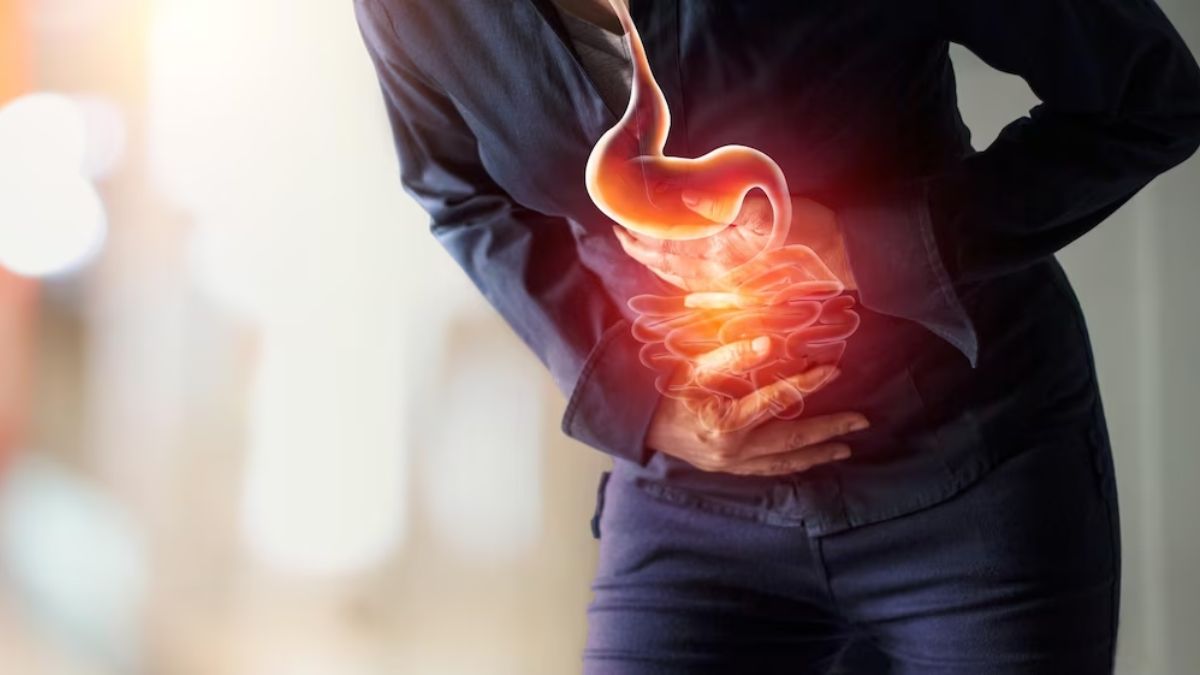- By Prerna Targhotra
- Tue, 13 Feb 2024 03:21 PM (IST)
- Source:JND
Ways To Get Relief From Bloating: Bloating is a common and often uncomfortable sensation in the upper abdomen. Nearly 40 to 45 per cent of GI consultations for dyspepsia (acidity) are usually associated with it. Bloating occurs when the abdomen feels swollen or distended, often accompanied by a sense of fullness and discomfort. While occasional bloating is a normal part of life, chronic or severe bloating may signal underlying issues that warrant attention. Discomfort, gassiness, and changes in bowel habits are also indicative of bloating.
Watch the video below about home remedies for bloating:
In a conversation with Jagran English, Dr Adi Rakesh Kumar, Consultant Gastroenterologist, Therapeutic Endoscopist & Endocrinologist, Yashoda Hospitals Hyderabad explained how to recognise bloating and deal with it.
According to Dr Kumar, recognising the triggers for bloating is essential for effective management. Usually bloating can be a part of dyspepsia (acidity) and Rome IV guidelines specifically mention that bloating is a common occurrence in South Asian Dyspepsia.
ALSO READ: Jasmin Bhasin Shares Secret To Her Fit And Toned Body | Watch Video
Ways To Deal With Bloating
According to Dr Kumar, certain foods, such as those high in fibre, beans, carbonated drinks, and artificial sweeteners, can contribute to bloating. Additionally, swallowing air while eating or drinking, and habits like chewing gum, can introduce excess air into the digestive system, leading to bloating.
Sometimes it can be a manifestation of Gluten sensitivity, lactose intolerance or malabsorption. Understanding these factors empowers individuals to make informed dietary and lifestyle choices.
1707818423226.jpg)
Ways To Get Relief From Bloating (Image Credits: Canva)
Taking proactive steps to alleviate bloating involves adopting a holistic approach. Start by examining your diet and identifying potential trigger foods. Gradually reintroduce eliminated foods to pinpoint those causing discomfort. Embrace a balanced diet with adequate fibre, as it aids digestion and prevents constipation, a common contributor to bloating.
Hydration plays a vital role in digestive health. Ensure you are drinking enough water throughout the day to facilitate proper digestion and reduce the risk of bloating. However, limit carbonated and sugary beverages, as they can exacerbate bloating.
Mindful eating practices can make a significant difference. Chew your food thoroughly, eat at a leisurely pace, and avoid multitasking during meals. These habits promote proper digestion, minimising the likelihood of bloating.
ALSO READ: 5 Reasons To Drink Orange Juice Regularly
Regular physical activity is another cornerstone of digestive health. Exercise stimulates bowel movements, preventing constipation and reducing the risk of bloating. Incorporate a mix of aerobic activities and core-strengthening exercises into your routine for optimal results.
Stress management is often overlooked but crucial in addressing bloating. Stress can impact digestion and exacerbate gastrointestinal symptoms. Engage in relaxation techniques such as deep breathing, meditation, or yoga to promote a calmer digestive system.
In cases where bloating persists or is accompanied by other concerning symptoms, seeking professional advice is paramount. Consult a healthcare provider to rule out underlying medical conditions such as irritable bowel syndrome (IBS), inflammatory bowel disease, or food intolerances.

